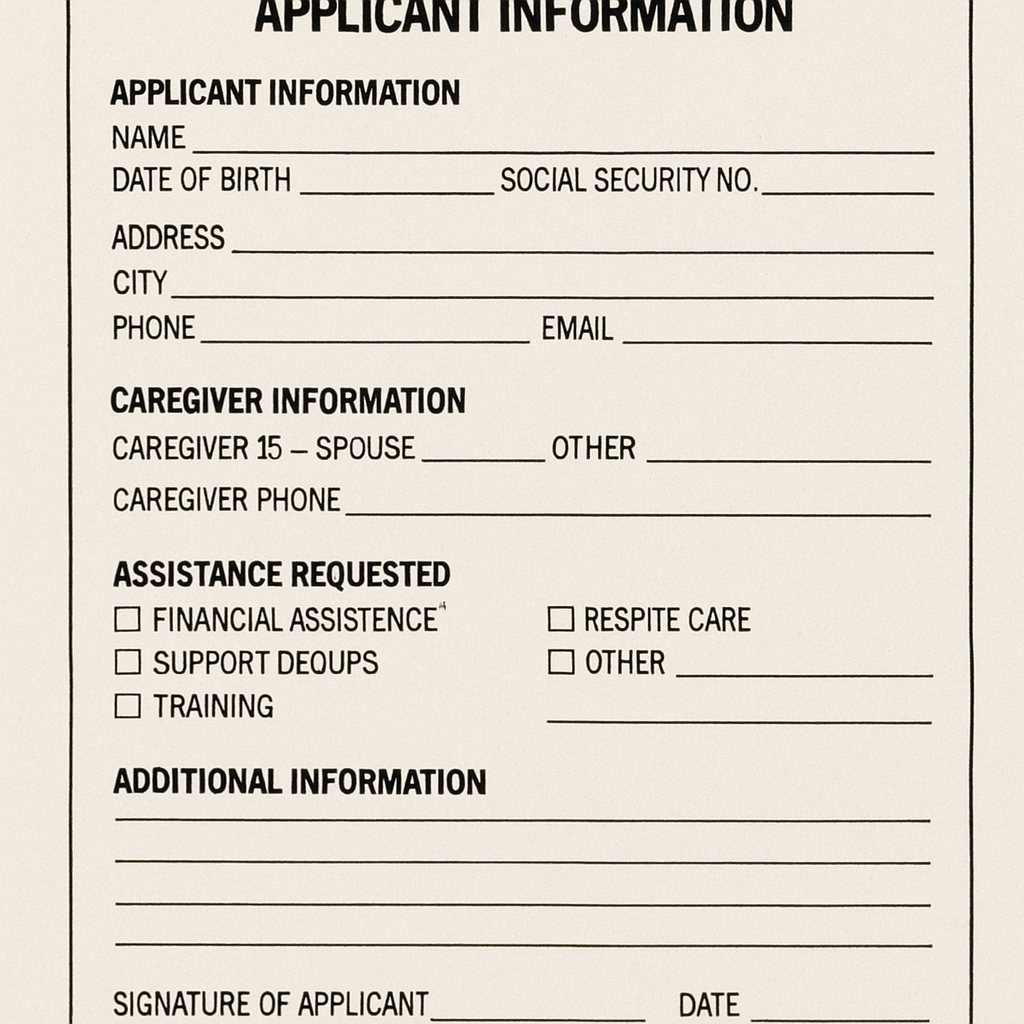can i get paid to take care of my mother
Taking care of an elderly parent can be both rewarding and challenging. Many people wonder if they can get paid to care for their mother or father. The good news is that there are programs available that can provide financial assistance to family caregivers. This article explores the options available for those who want to become caregivers for their parents and how you can get paid for it.

Family caregiving involves providing care to a loved one, usually an elderly parent, who needs help with daily activities. This can include tasks such as bathing, dressing, meal preparation, medication management, and transportation. While caregiving can be a fulfilling experience, it can also take a toll on your finances, especially if you have to reduce your working hours or quit your job.
The Emotional Journey of Family Caregiving
Becoming a family caregiver is not just a physical task but an emotional journey. As you step into the role, you might experience a range of emotions, from joy and satisfaction to stress and frustration. Understanding these feelings and acknowledging them is essential for maintaining your mental health. It's important to seek support and find outlets to express your emotions, whether through therapy, support groups, or trusted friends.
The Financial Impact of Caregiving
The financial impact of caregiving is significant. Many caregivers find themselves spending out of pocket for supplies, medical needs, and other costs associated with care. Moreover, the need to reduce work hours or leave a job can add financial strain. Understanding the full scope of these costs is crucial in planning and seeking financial support, ensuring that your caregiving role does not jeopardize your financial stability.
Balancing Caregiving with Personal Life
Balancing the demands of caregiving with personal life is another challenge faced by family caregivers. The role can be time-consuming, often leading to neglected personal relationships and self-care. Establishing boundaries, prioritizing tasks, and seeking help when needed can help maintain a balance, allowing you to fulfill your caregiving responsibilities without sacrificing personal well-being.
Can I Get Paid to Take Care of My Mother?
The simple answer is yes, but it depends on your situation and where you live. Various programs offer financial support for family caregivers. Here are some options to consider:
Medicaid and State Programs
Medicaid is a state and federal program that helps with medical costs for people with limited income. Many states have Medicaid programs that pay family caregivers. These programs are often referred to as "Medicaid Waivers" or "Home and Community-Based Services (HCBS) Waivers."
Eligibility and Application Process
Understanding the eligibility criteria and application process is the first step in accessing Medicaid and state programs. Eligibility is often based on income and medical need, so it’s important to gather all necessary documentation. The application process may vary by state but generally involves submitting detailed information about your parent’s health and your caregiving role.
The Role of Medicaid Waivers
Medicaid Waivers play a crucial role in allowing family members to become paid caregivers. These waivers are designed to provide care in a home setting rather than institutional care, which is often more costly. By utilizing these waivers, families can ensure that their loved ones receive personalized care while also receiving financial compensation for their efforts.
Navigating State-Specific Programs
Each state has its own set of rules and programs for family caregivers. Navigating these can be complex, but state-specific resources and guides are available to help you understand your options. Contacting local health departments or aging services can provide valuable insights into the programs available in your area.
Family Caregiver Assistance Programs

Some states have programs specifically designed to support family caregivers. These programs may offer financial assistance, training, and respite care. They can help alleviate the financial burden and provide support to help you care for your parent at home.
Financial Assistance and Support
Financial assistance through caregiver programs can vary widely. Some programs offer direct payments, while others provide vouchers for services or supplies. Understanding the nature of the assistance available can help you plan effectively and ensure that you maximize the benefits you receive.
Training and Skill Development
Training programs are often a component of caregiver assistance programs. These are designed to enhance your caregiving skills, ensuring you can provide the best possible care. Training can cover a range of topics, from basic care techniques to managing complex medical equipment, preparing you for the diverse challenges of caregiving.
Respite Care Opportunities
Respite care is a critical component of caregiver support, offering temporary relief to family caregivers. This service allows you to take much-needed breaks, reducing the risk of burnout. Understanding how to access respite care and the options available in your area is vital for maintaining your well-being as a caregiver.
Veterans Aid Programs
If your parent is a veteran, there are additional programs that can provide financial support for caregiving. The Department of Veterans Affairs (VA) offers several programs, including the Aid and Attendance benefit, which provides additional income to veterans and their spouses who require the assistance of a caregiver.
Understanding VA Benefits
VA benefits for caregivers are designed to acknowledge the sacrifices made by veterans and their families. These benefits can include financial compensation and access to additional health services. Understanding the full range of VA benefits can help you provide comprehensive care while receiving the support you need.
Applying for VA Programs
The application process for VA programs can be complex, involving detailed documentation and verification of eligibility. Working with a VA representative or using online resources can simplify this process, helping you navigate the requirements and access benefits more efficiently.
Additional Support for Veteran Caregivers
Beyond financial assistance, veteran caregivers can access additional support services through the VA. These include counseling, support groups, and specialized training. Engaging with these resources can enhance your caregiving experience, providing valuable tools and support systems.
Long-Term Care Insurance
If your parent has long-term care insurance, it may cover in-home care provided by family members. Review the policy carefully, as coverage varies depending on the plan. Some policies require caregivers to be licensed or certified, while others may allow family members to provide care.
Understanding Insurance Policies
Understanding the specifics of long-term care insurance policies is essential. Policies can vary widely, with different coverage limits, exclusions, and requirements. Carefully reviewing the policy and discussing any questions with an insurance representative can ensure you fully utilize the benefits available.
The Role of Certifications
Some long-term care insurance policies require caregivers to hold certain certifications. Obtaining these certifications can open up opportunities for compensation and ensure you meet the policy's requirements. Certification programs are available through various organizations, offering training in essential caregiving skills.
Maximizing Insurance Benefits
Maximizing the benefits of long-term care insurance involves strategic planning and understanding the policy's details. Coordinating with insurance providers, understanding billing processes, and keeping detailed records of care can help you fully utilize the benefits your parent's policy offers.
How to Become a Paid Family Caregiver
If you're interested in becoming a paid caregiver for your mother, here are the steps you should take:
- Research Programs: Investigate the options available in your state and determine which programs you and your parent may qualify for.
- Start by identifying the specific needs of your parent and matching them with available programs. Online resources and state health department websites are good starting points.
- Contact Agencies: Reach out to local agencies, such as your state's Medicaid office or Department of Aging, to learn about eligibility requirements and application processes.
- Building relationships with these agencies can provide ongoing support and updates on new programs or changes in existing ones.
- Apply for Assistance: Complete the necessary applications for the programs you qualify for. This may involve providing documentation of your parent's medical needs and your caregiving responsibilities.
- Ensure you have all required documents ready and seek assistance if the application process is complex or confusing.
- Attend Training: Some programs require caregivers to complete training or certification courses. Make sure you fulfill any training requirements to qualify for financial assistance.
- Training can provide valuable skills and confidence, enhancing the care you provide and potentially opening doors to additional opportunities.
- Keep Records: Maintain detailed records of the care you provide, including the hours you work and the tasks you perform. This documentation may be required for program eligibility and payments.
- Detailed records are essential for transparency and can be useful for personal tracking of your caregiving journey and progress.
Additional Support for Family Caregivers

by Age Cymru (https://unsplash.com/@agecymru)
In addition to financial assistance, there are other resources available to support family caregivers:
Respite Care
This service provides temporary relief for caregivers, allowing you to take a break while a professional caregiver takes over your duties. Respite care can be provided in-home or at a designated facility.
In-Home Respite Care Options
In-home respite care allows your loved one to remain in familiar surroundings while you take a break. Professional caregivers come to your home, providing care tailored to your parent's needs. This option is ideal for those who prefer the comfort and familiarity of home care.
Facility-Based Respite Care
Facility-based respite care involves temporary stays at a care facility, providing a change of environment and access to specialized services. This option can be beneficial for caregivers who need extended breaks or when more intensive care is required.
Planning for Respite Care
Planning for respite care involves scheduling, understanding costs, and selecting the right provider. Early planning and open communication with care providers can ensure a smooth transition and peace of mind during your break.
Support Groups
Connecting with other caregivers can provide emotional support and practical advice. Look for local or online support groups for caregivers.
Benefits of Support Groups
Support groups offer a sense of community and shared experience, reducing feelings of isolation. They provide an opportunity to share challenges, successes, and strategies, fostering a supportive environment for personal growth and resilience.
Finding the Right Group
Finding the right support group involves considering factors such as location, meeting times, and the focus of the group. Online forums and local community centers are good places to start your search, ensuring you find a group that meets your needs.
Engaging with Support Communities
Engaging actively with support communities can enhance your caregiving experience. Regular participation, openness to sharing, and willingness to learn from others can enrich your journey and provide valuable insights and friendships.
Counseling Services
Caring for a loved one can be emotionally taxing. Consider seeking counseling or therapy to help you manage stress and maintain your well-being.
The Importance of Mental Health
Maintaining mental health is crucial for effective caregiving. Counseling services offer a safe space to explore emotions, develop coping strategies, and gain perspective, supporting your overall well-being.
Accessing Counseling Services
Accessing counseling services can be done through various channels, including community mental health centers, private therapists, and online platforms. Understanding your options and finding a counselor that fits your needs can enhance your caregiving experience.
Integrating Counseling into Caregiving
Integrating counseling into your caregiving routine involves scheduling regular sessions and prioritizing your mental health. By making counseling a consistent part of your life, you can better manage stress and maintain a balanced outlook.
Conclusion
Caring for an aging parent is a significant responsibility, but there are resources available to help ease the financial burden. By exploring the various programs and assistance options, you can become a paid caregiver for your mother, allowing you to provide the care she needs while also supporting your own financial stability.
Remember to research your options, reach out to local agencies, and apply for the programs that best fit your situation. With the right support, you can navigate the challenges of caregiving and make a positive impact on your parent's life. As you embark on this journey, remember that taking care of yourself is just as important as caring for your loved one.
Turn Your Compassion Into a Career — or Get Paid to Care for Family
Are you a caregiver looking for meaningful work? Or are you already caring for a loved one at home and wondering if you can get paid for the care you provide?
At InclusiveOne Home Care we offer rewarding opportunities for:
- Professional Caregivers – CNAs, HHAs, and companions who want flexible, fulfilling work helping seniors live safely and comfortably at home.
- Family Caregivers – If you're caring for a parent, grandparent, or other loved one, you may qualify to get paid through state-funded programs. We’ll guide you through the process.
- Full-Time, Part-Time, and Flexible Shifts Available
Whether you're seeking a caregiving career or already providing care for someone you love, we’re here to support you every step of the way.
Apply Now or contact us by Phone or Email to Learn More About Becoming a Paid Caregiver!
Your care makes a difference — let us help you make it a career.
[Join Our Team] [Get Paid to Care for Family]
